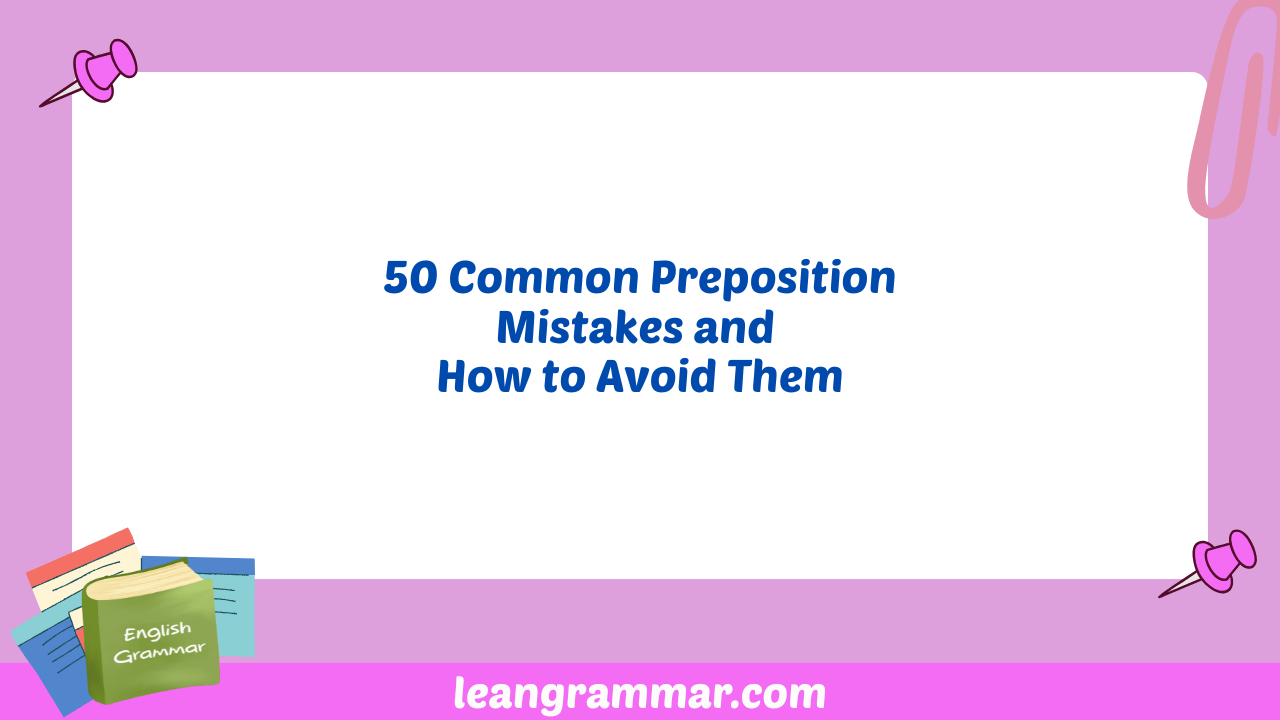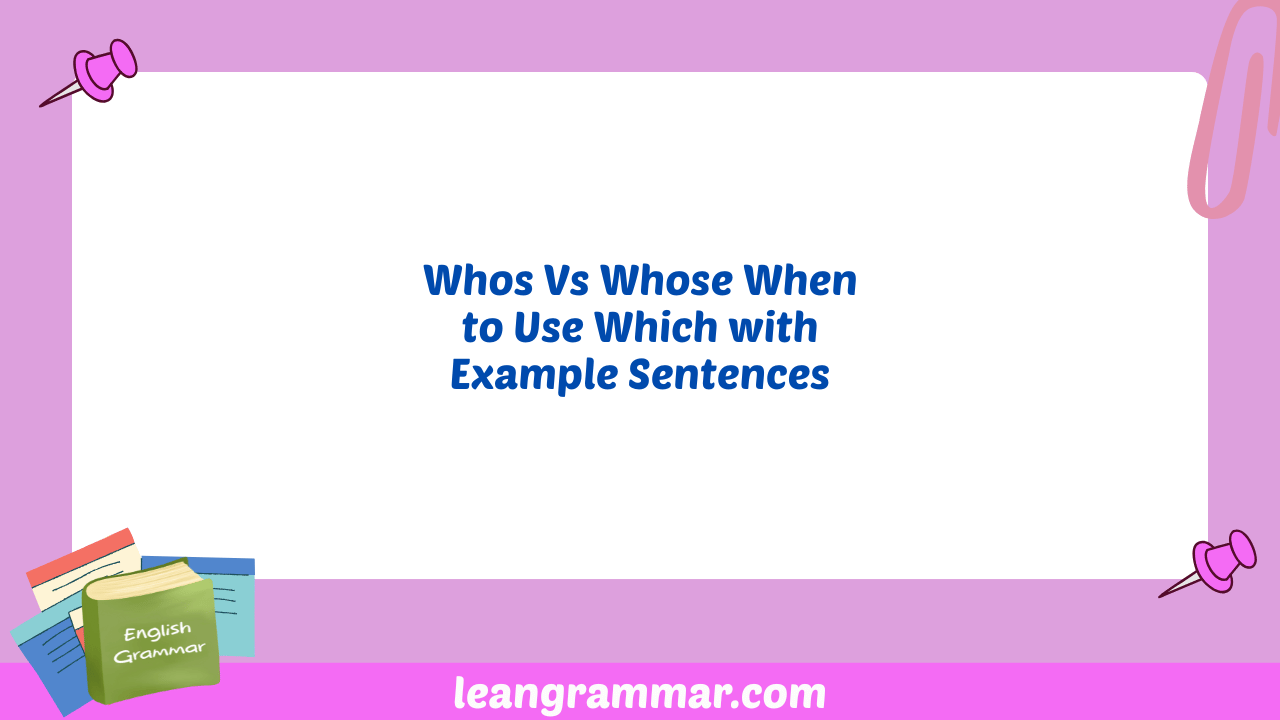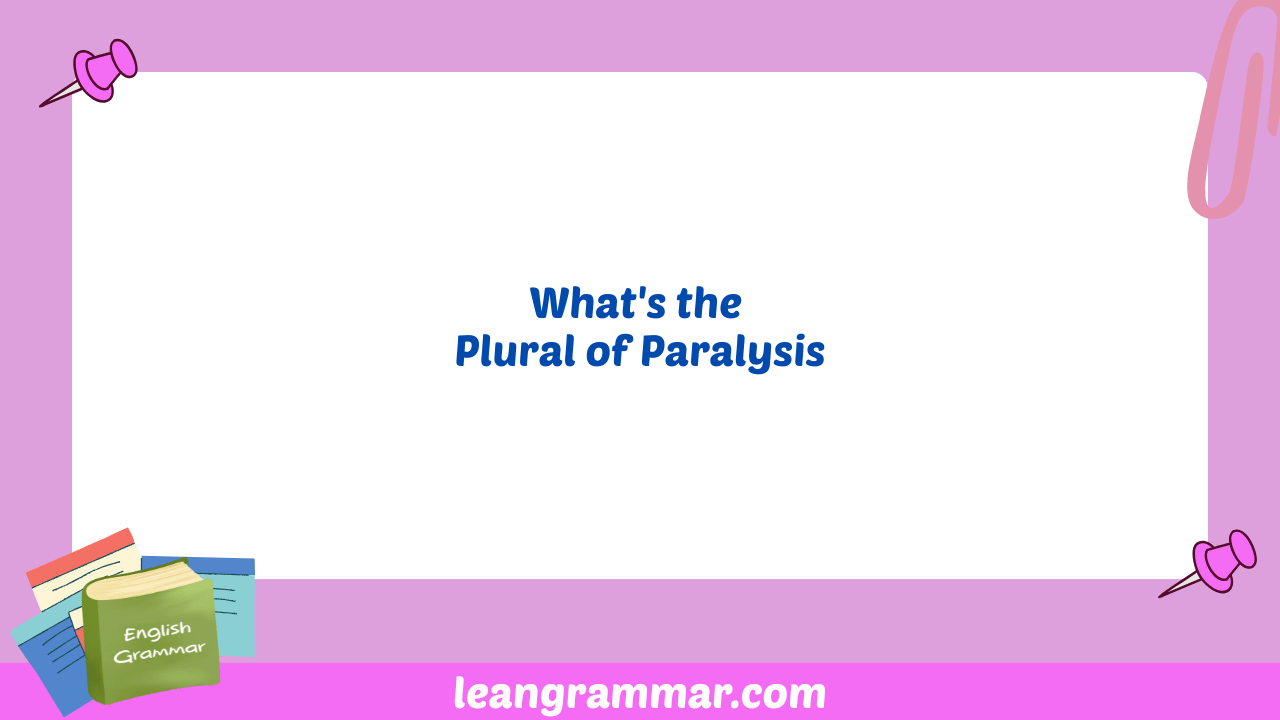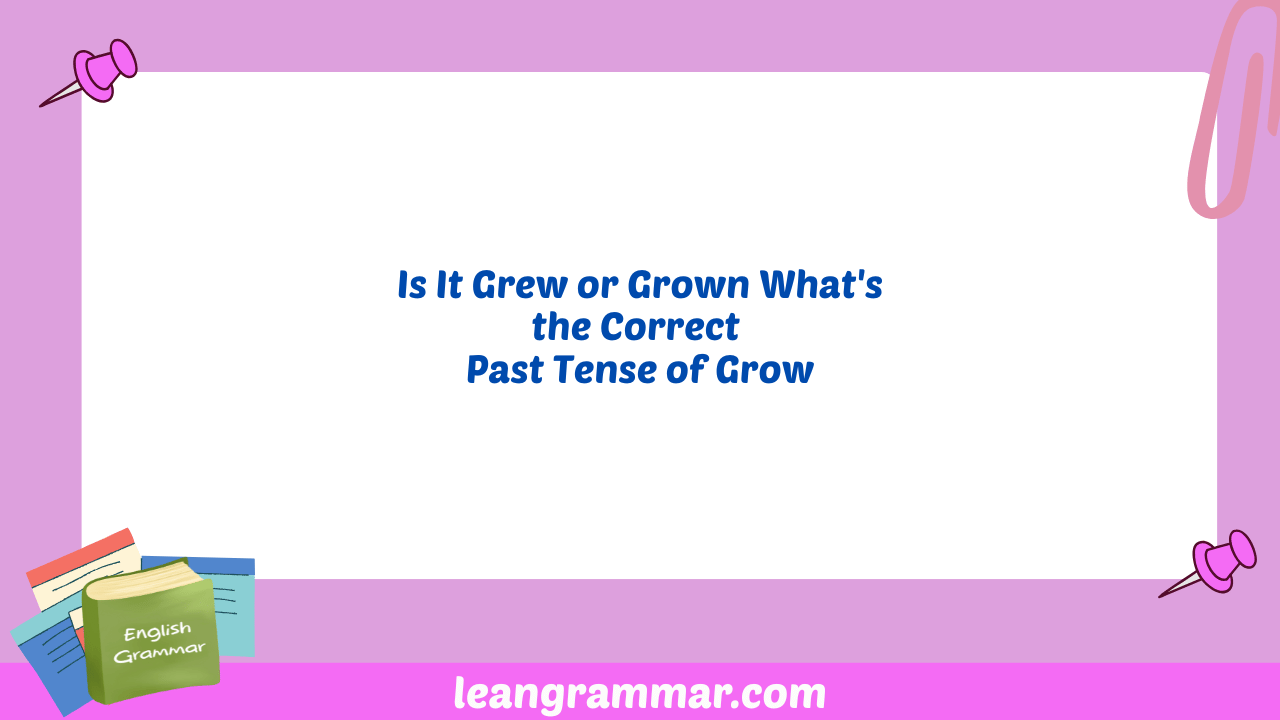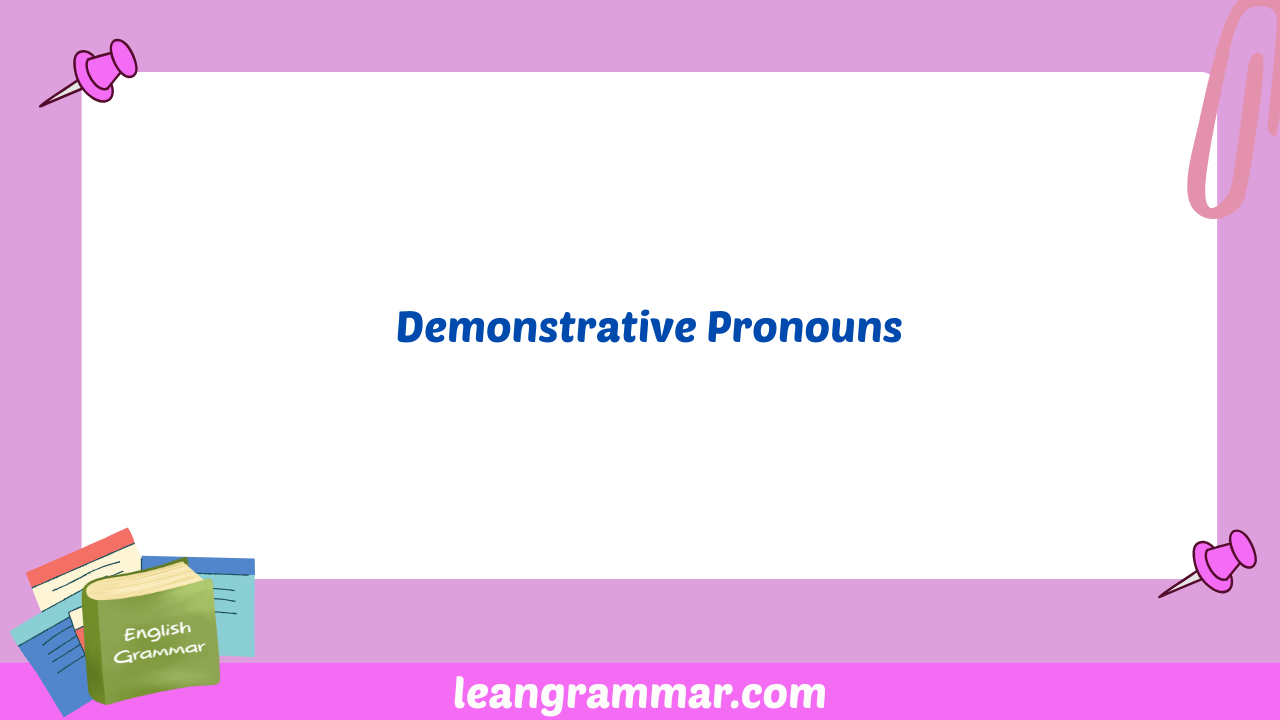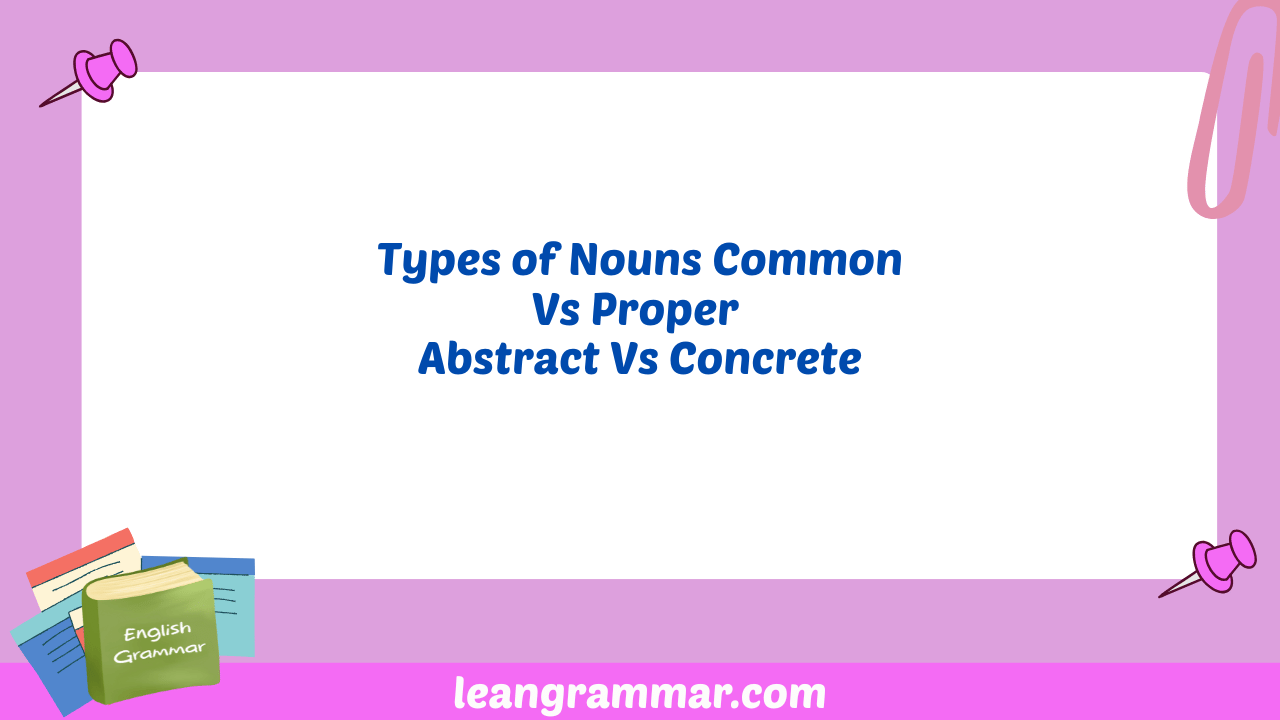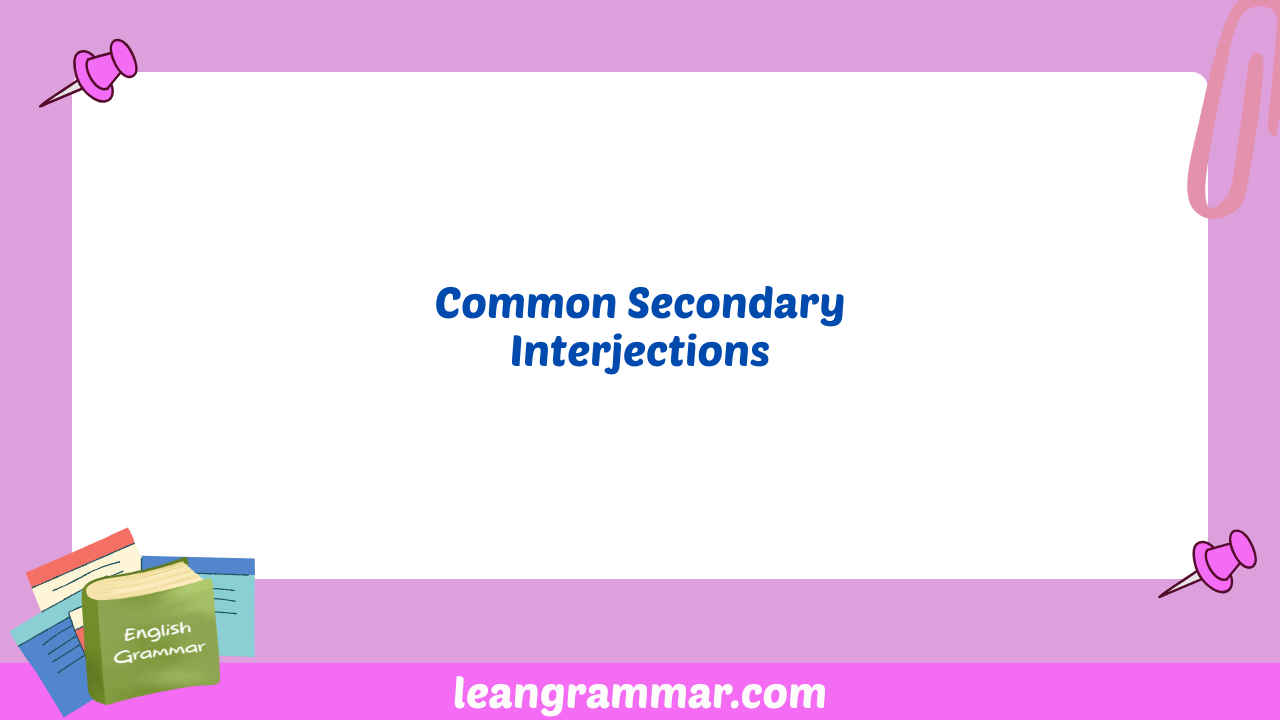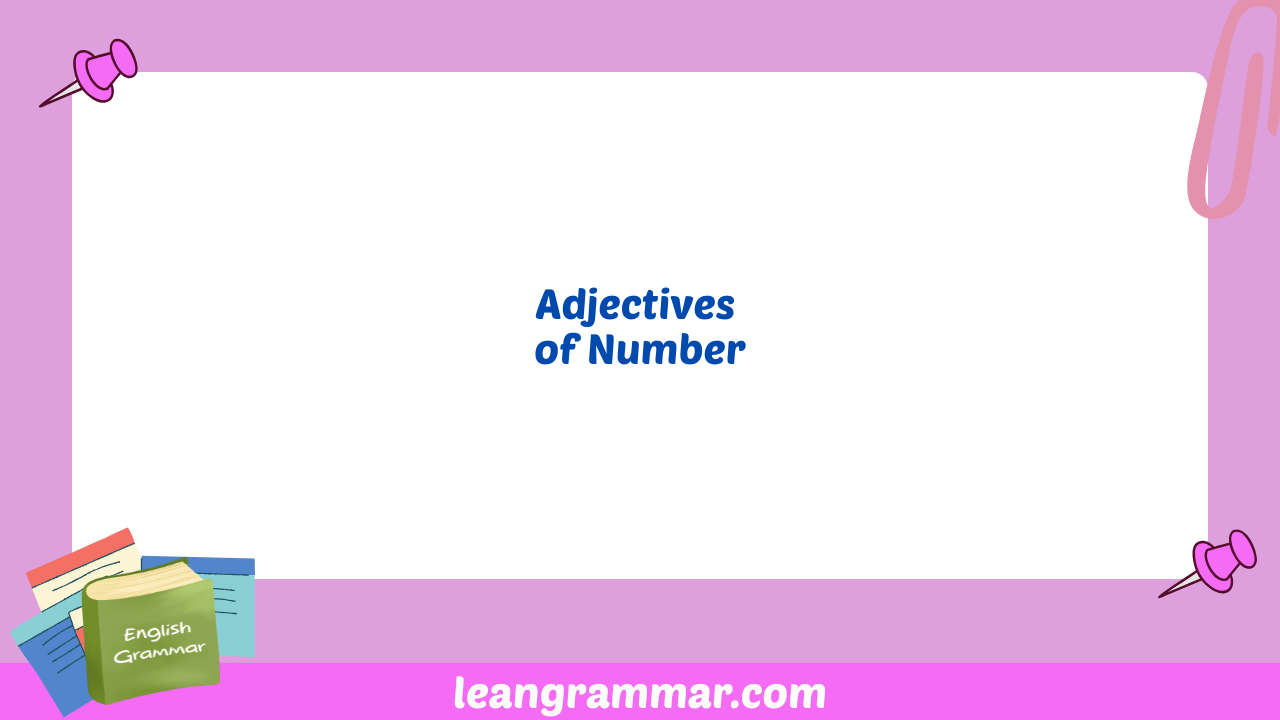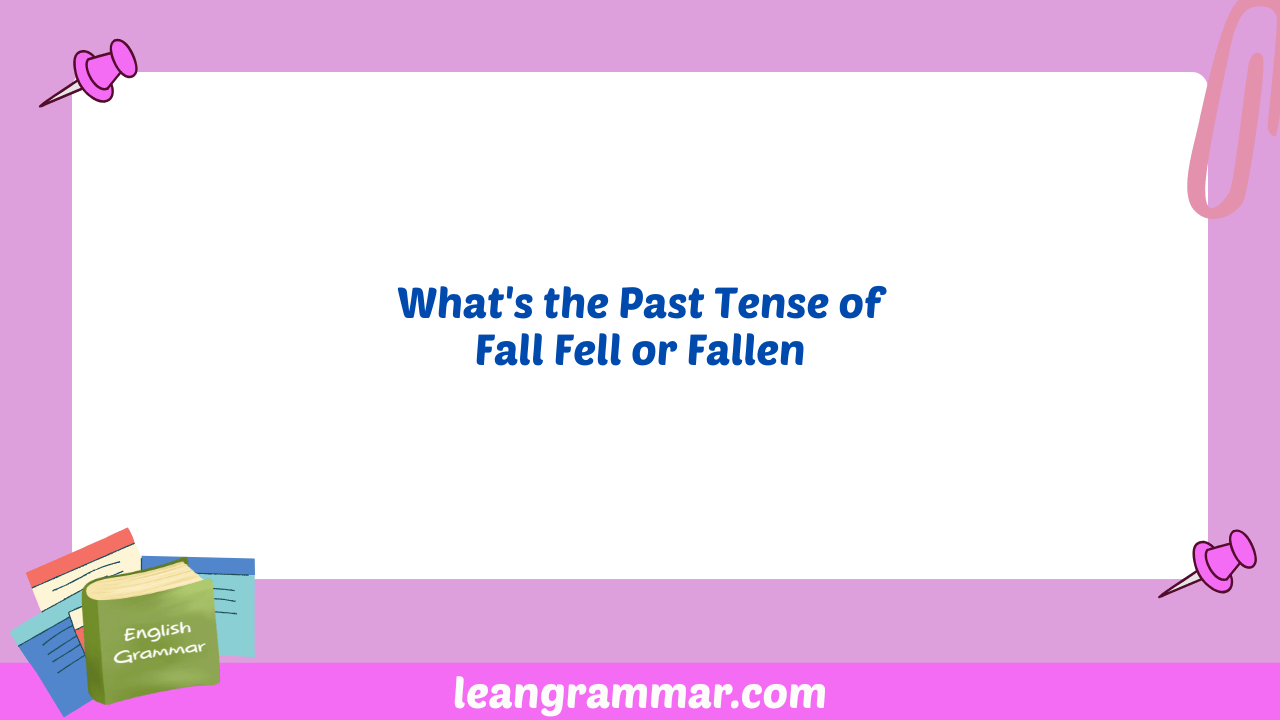50 Common Preposition Mistakes & How to Avoid Them
Prepositions are essential building blocks of English grammar, linking nouns, pronouns, and phrases to other parts of a sentence. Mastering prepositions is crucial for clear and effective communication, but they can be tricky due to their context-dependent nature and idiomatic usage. This article will guide you through 50 common preposition mistakes, providing clear explanations, examples, … Read more
